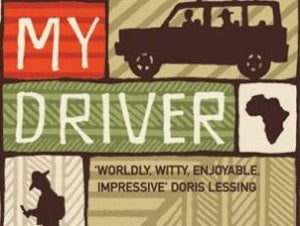My Driver, By Maggie Gee
Romance and realism out of Africa

Your support helps us to tell the story
From reproductive rights to climate change to Big Tech, The Independent is on the ground when the story is developing. Whether it's investigating the financials of Elon Musk's pro-Trump PAC or producing our latest documentary, 'The A Word', which shines a light on the American women fighting for reproductive rights, we know how important it is to parse out the facts from the messaging.
At such a critical moment in US history, we need reporters on the ground. Your donation allows us to keep sending journalists to speak to both sides of the story.
The Independent is trusted by Americans across the entire political spectrum. And unlike many other quality news outlets, we choose not to lock Americans out of our reporting and analysis with paywalls. We believe quality journalism should be available to everyone, paid for by those who can afford it.
Your support makes all the difference.A silverback gorilla plays the improbable role of Oberon in Maggie Gee's 21st-century version of a Shakespearean romantic comedy. In the rainforest of western Uganda, a transformation effects reconciliation within a British and an African family. An ornate and witty series of coincidences, cultural misunderstandings and marital squabbles, reminiscent of the magical world of A Midsummer Night's Dream, leads the reader to expect a redemptive resolution.
But the setting is Uganda under Museveni. Gee yokes romance and realism by varying the lens through which the reader sees the action. Vanessa Henman, a moderately successful writer, flies to Uganda to read at a conference. She worries about her son and grandson as her former cleaner, Mary Tendo, frets about the whereabouts of her missing teenager, a boy soldier.
Mary is now executive housekeeper of the hotel in Kampala where Vanessa stays. Unknown to Vanessa, her former husband Trevor, a plumber whom she still loves, is also about to travel to Uganda, summoned by Mary to offer his skills to her village. After the conference, Vanessa sets off alone to visit a forest park, naively assuming that she will encounter gorillas rather than guerrillas.
The mobile perspective offers multiple ways of seeing. Vanessa's impoverished driver finds her claim to be "quite young" grotesque; she is appalled by his incredulity at her assumption that men and women are equal. Some of the satirical tracks are too well-worn such as the eager British Council man and his marketing-speak.
Here, people "hike into the city", moving "from the unwritten past into the urban future", a general misconception about history, language and the village. In spite of their flaws, Trevor and Vanessa are benefactors in a Uganda presented as needy and even predatory and there's no reference to the country's achievements. Like the lovers in Shakespeare's play the protagonists go back to the city, giving the sense that, with problems resolved by the forest, they can resume their urban lives.
Join our commenting forum
Join thought-provoking conversations, follow other Independent readers and see their replies
Comments